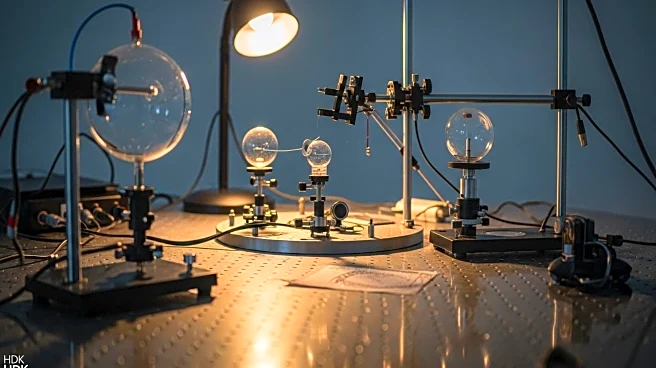What is the story about?
What's Happening?
The Quantum Enhanced Space-Time measurement (QUEST) experiment at Cardiff University has set new limits on very high-frequency gravitational waves using a table-top interferometric system. The experiment achieved record-breaking sensitivity, measuring changes in length 100 trillion times smaller than a human hair. The findings, published in Physical Review Letters, contribute to understanding space-time, gravity, and dark matter.
Why It's Important?
This experiment is significant for advancing the study of quantum gravity and the fundamental nature of space-time. By achieving high sensitivity in a compact setup, the research offers new possibilities for exploring gravitational waves and space-time fluctuations. The findings could lead to improvements in gravitational wave detectors and contribute to the broader field of physics.
What's Next?
The research team plans to conduct a months-long science run to further improve sensitivity and probe space-time fluctuations. This ongoing work could refine the understanding of quantum gravity and enhance the detection capabilities of gravitational wave instruments. The study may also lead to new insights into the behavior of space-time at quantum levels.
Beyond the Headlines
The experiment highlights the potential for innovative approaches in physics research, using compact and sensitive instruments to explore fundamental questions. It underscores the importance of interdisciplinary collaboration in advancing scientific knowledge.














